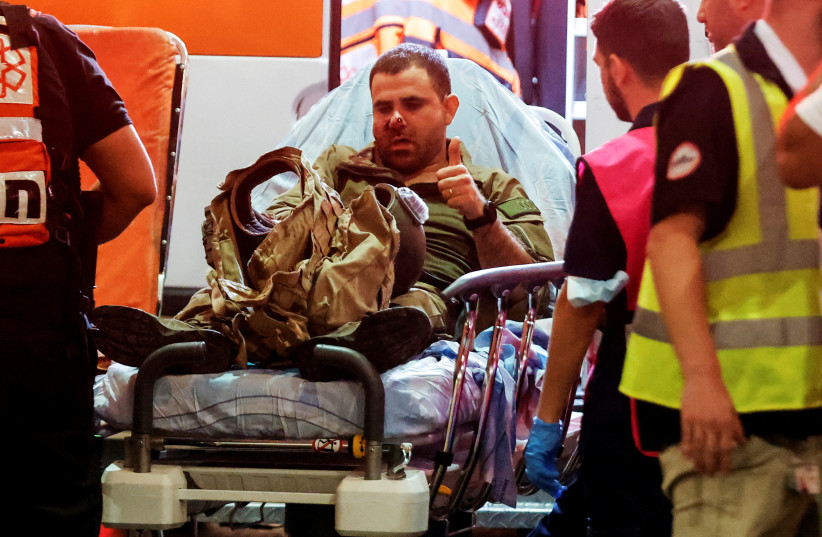The South’s medical resources were stretched to its limits Saturday as hundreds of wounded from the Hamas attack were brought to for medical care.
Soroka-University Medical Center in Beersheba reported last night that it had received more than 520 casualties since the beginning of the fighting.

Those wounded to various degrees of severity are hospitalized in various departments: general intensive care, intermediate intensive care, general surgery, vascular, heart and chest, plastic surgery, neurosurgery, nose and throat, ophthalmology, pediatric surgery, and internal departments.
114 are in serious or critical condition
Among those hospitalized 114 are in serious or critical condition; 87 in moderate condition; and 324 are lightly wounded. There were four who suffered anxiety attacks. Seven Soroka patients who are connected to ventilators were moved to Herzog Medical Center in Jerusalem.
All elective and ambulatory activities will be canceled on Sunday.
The staff in some of the hospital’s units are switching to 12-hour shifts. Soroka will operate daycare centers for the children of the employees, to cater to those who are working shifts. Magen David Adom (MDA) and United Hatzalah (UH) ambucycles and ambulances rushed their staff and volunteers to where the dead and wounded were located.
The medevac helicopters of UH and Lahak Aviation evacuated some of the wounded to hospitals in central Israel, and UH teams scattered across southern Israel provided initial treatment to hundreds of victims with varying degrees of injury. The voluntary organization has raised its preparedness to its highest level, reinforced the response to routine calls, and switched the sound of ambulance sirens to a sound that does not resemble the sound of air-raid sirens.
Halt of all travel abroad of health system employees
Hospitals up to 80 kilometers from the Gaza Strip will not accept elective and ambulatory patients until further notice but will admit only emergency cases. No tipat halav (well-baby) clinics will function in this area on Sunday.
Health Ministry Director-General Moshe Bar Siman Tov ordered the halt of all travel abroad by health system employees, plus the cancellation of leave and the publication of a directive by the heads of hospital departments for the return of medical teams currently staying abroad.
